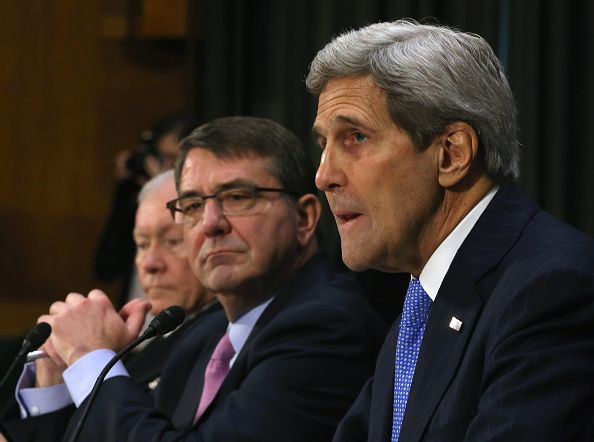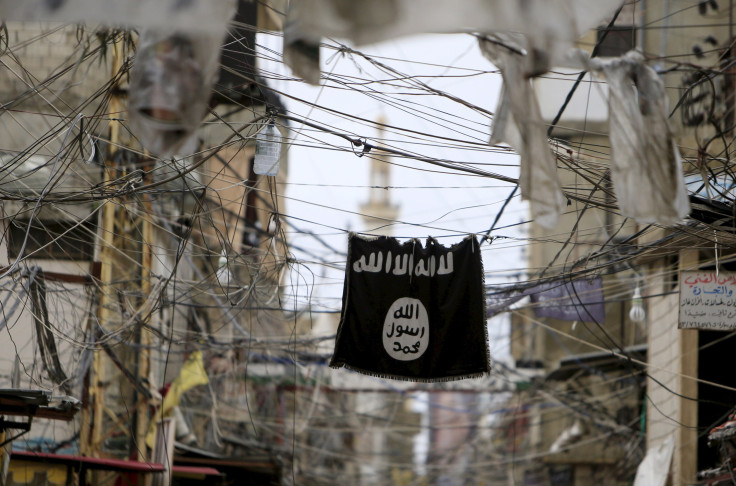The Fight Against ISIS: US Urges Allies To Do More In Anti-Islamic State Efforts Amid Pentagon Complaints: Report

Pentagon officials have expressed increasing frustration that some of the 64 partner nations and regional groups in the U.S.-led coalition gathered to battle Islamic State militants have not been doing enough to help, the Los Angeles Times reported Monday. Secretary of Defense Ashton Carter complained last month that some of the allies are “not doing enough or doing nothing at all.”
Meanwhile, the U.S. is reportedly considering increasing its efforts to battle the terror group by sending several hundred more U.S. and allied trainers, advisers and special operations teams to help the Iraqi, Kurdish and Syrian opposition fighters battle ISIS militants in Iraq and Syria. But Pentagon planners also say more coalition troops are needed before Iraqi security forces can recapture Mosul, Iraq, which has been held by ISIS for a year and a half.

Secretary of State John Kerry is scheduled to go to Rome Tuesday, seeking more support from two dozen nations in the coalition. He will "discuss ways to further intensify commitments across all lines of effort to degrade and defeat this terrorist group," State Department spokesman John Kirby said Friday, the Los Angeles Times reported. Carter is also slated to head to Brussels later this month to urge defense ministers from 26 countries to deploy more trainers and advisers and to provide more support and reconnaissance aircraft, boost deliveries of arms and ammunition, and increase their role in the war, Pentagon officials said.
While each country has helped in varying degrees in the fight against ISIS, the U.S. has done the most work by far. U.S. warplanes have conducted 68 percent of the 6,655 airstrikes in Iraq and 94 percent of the 3,305 airstrikes in Syria since August 2014, according to the Los Angeles Times. The U.S. has sent roughly 3,700 troops to Iraq, while an additional 16 nations part of the coalition have sent a total of 2,400 troops.
© Copyright IBTimes 2024. All rights reserved.






















